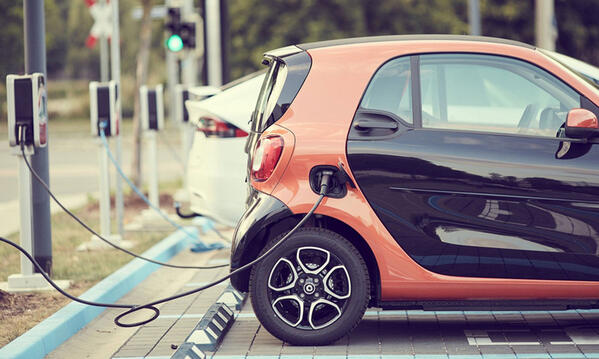Electromobility as an important future issue in the environmental sector

The further roll-out of renewable energies and efficient use of resources – these are the central elements of environmental and climate protection in Germany. Another important factor is electromobility. The electromobility of the future is likewise a key issue being addressed today in China, Japan, and North America. The Federal Government Federal Government The Federal Government and cabinet is made up of the Federal Chancellor and the Federal Ministers. While the Chancellor holds the power to issue directives, the ministers have departmental powers, meaning that they independently run their respective ministries in the framework of those directives… Read more › and the automotive industry are jointly pursuing the ambitious goal of making Germany the leading market for electromobility and locking into the immense potential this global market has to offer. By 2030, according to the Federal Government, between seven and ten million electric vehicles will be registered in Germany.
The plan is for the increasing number of electric cars to help lower greenhouse gas emissions Greenhouse gas emissions Roughly two thirds of global warming caused by humans (anthropogenic) can be attributed to carbon dioxide emissions. The gas is produced when the fossil fuels gas, oil and coal are burned. They all contain carbon which combines with atmospheric oxygen to form carbon dioxide. In addition to carbon… Read more › still further, a fifth of which stem from road traffic. To ensure the success of e-mobility, Germany needs a sufficient number of public charging stations. The objective is for one million of these to be available by 2030; to this end, the German cabinet agreed a “masterplan for charging station infrastructure” at the end of 2019. Alongside public charging stations, private ones also play an important role, particularly in rural regions. Users of electric vehicles who install their own systems at home are therefore eligible for funding from the Kreditanstalt für Wiederaufbau (KfW). There are also subsidies available for purchasing a vehicle. Around 250,000 applications were submitted for these so-called “innovation premiums” in Germany in 2020.
German car manufacturers are also addressing e-mobility concepts in great depth. They plan to invest 40 billion euros in research and development by 2022 and aim to increase the number of models to over 100. There are currently around 60 models in almost all vehicle segments. German manufacturers account for around two thirds of the electric vehicle market in Europe.
Key topic of battery research
Research and development in this area is also being bolstered further. Since 2009 the Federal Government Federal Government The Federal Government and cabinet is made up of the Federal Chancellor and the Federal Ministers. While the Chancellor holds the power to issue directives, the ministers have departmental powers, meaning that they independently run their respective ministries in the framework of those directives… Read more › has invested around three billion euros here. One major issue in relation to the energy and mobility transition is research into batteries. The Federal Ministry for Economic Affairs is therefore working towards making Germany a leading hub in the European Battery Alliance and is providing a billion euros for this purpose by 2022. The Battery Alliance brings together EU member states, the European Commission European Commission The European Commission is headquartered in Brussels and is a politically independent supra-national body that represents and safeguards the interests of the entire EU. The EU Commission has the right to table proposals (right of initiative) for all common legal acts; as “guardian of the treaties”… Read more › and European industrial corporations.


